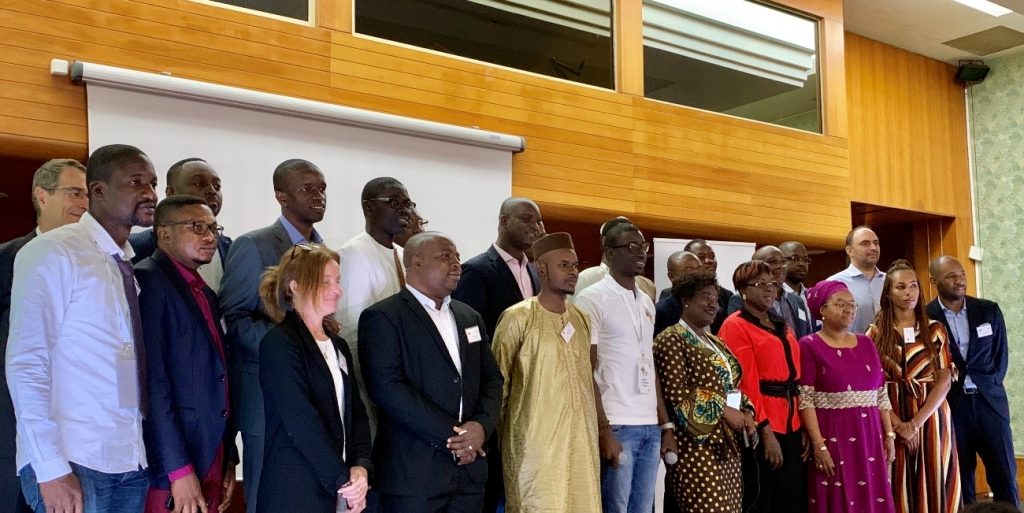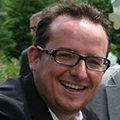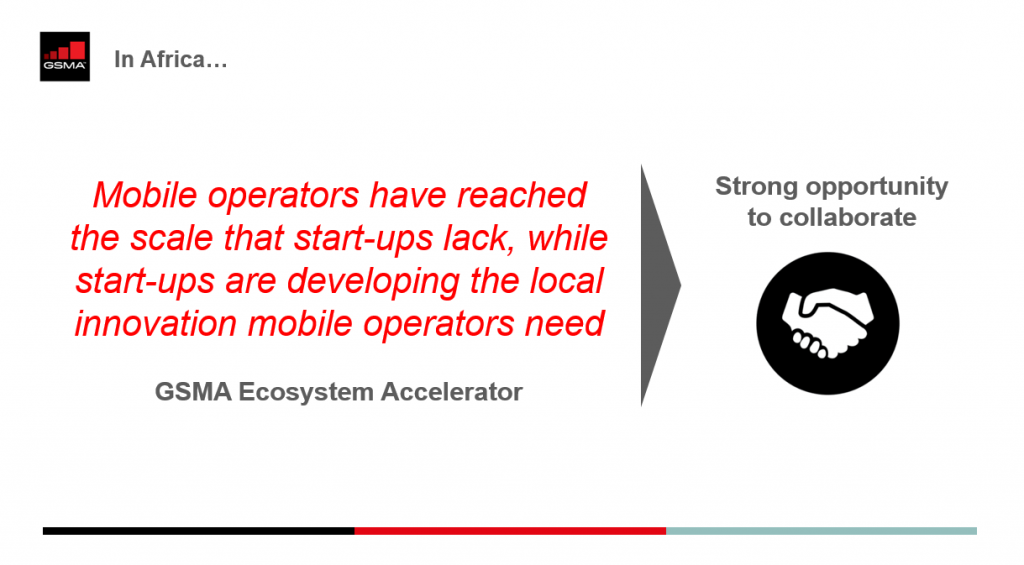During the last week of June, our team was invited to participate in the first edition of Sonatel (Orange Group)’s Digital Teranga Days, aimed at driving digital transformation across Orange countries of the region. The objective of this week was also to support our two local portfolio start-ups (Sudpay and MaTontine) as our grant funding period with them is reaching its end. Just a year after our last market visit to Senegal, it was a great opportunity to witness the country’s progress on its path to digital transformation.
1. Orange Digital Teranga Days: It takes an ecosystem
As digital and innovation teams from Orange operations across no less than 10 countries (Senegal, Côte d’Ivoire, Guinea-Bissau, Sierra Leone, Mali, Morocco, Botswana, Cameroon, DRC and Burkina Faso) gathered for the first edition of this Digital Teranga Days workshop, the enabling role of mobile operators on a given country’s digital transformation is more crucial than ever. An example of which is Orange Money, as the number of active users almost doubled from eight to 15 million across Orange’s African operations in just two years between 2016 and 2018. Today, one in eight Orange users in the region use Orange Money at least once every 90 days.

Orange digital departments teams from Senegal, Côte d’Ivoire, Guinea-Bissau, Sierra Leone, Mali, Morocco, Botswana, Cameroon, DRC and Burkina Faso
A number of participants in the workshop, including serial entrepreneur, Gilles Babinet, reminded us that digital transformation (both at a corporate and a country level) can’t take place without extensive collaboration between the ecosystem stakeholders, especially between corporates and start-ups. A point we emphasised during our presentation that focused specifically on the collaboration between mobile operators and start-ups in the continent.
A number of initiatives put in place by Orange in Senegal illustrate the local willingness to drive this kind of collaboration at each stage of the start-up’s maturity path. These include, among others, Orange Social Venture Prize, Orange Fab Senegal, Orange Senegal APIs, and Orange Digital Ventures (based in Dakar). One of the participants in the panel we moderated was actually Bamba Lo, the co-founder and CEO of Paps, a Dakar-based delivery start-up that went through three of these four Orange programmes and has consequently built a close partnership with the mobile operator.
2. Sudpay: Digital inclusion for informal merchants
TownPay is a solution developed by the Dakar-based start-up, Sudpay. It allows municipalities to automate, and later digitise, the collection of local taxes from small merchants to reduce fraud, improve collection rates and in turn allow municipalities to have an increased budget to use for improved public services including healthcare, education, infrastructure, waste collection, public lighting etc. The solution initially equips municipal tax collectors with proprietary mobile terminals and municipalities with digital dashboards to track tax collection.
Sudpay received a grant from the GSMA Ecosystem Accelerator Innovation Fund in February 2018 to set up and roll out TownPay in several municipalities of Dakar.
During our visit at the end of June 2019, the GSMA Ecosystem Accelerator grant funding was drawing to a close. By this point, Sudpay’s outreach has increased, as to date they have enrolled over 18,000 small merchants across Senegal on the platform and are collecting close to $40,000 of local tax on a monthly basis. While the acquisitions progress in Senegal, the team is now working on expansion into other nearby markets, including Côte d’Ivoire and Mali.
This visit was also the opportunity for us to spend more time with Sudpay’s operational team. We shared some insights on the importance of mobile money and collaboration with mobile operators in general.
3. MaTontine: Digitising informal savings groups
In Senegal – as in most of Francophone West Africa – most people, especially women, do ‘tontines’. These are traditional and often informal rotating savings circles that allow members to obtain some kind of credit, which is the closest to financial inclusion most households usually get. MaTontine offers a mobile-based automated platform for ‘tontines’ using SMS, USSD and mobile money technologies. By allowing users to build their credit scores over time, MaTontine makes it possible for them to access financial services, such as small loans and insurance. The community focused platform is deployed and run by tontine managers (they are mainly women) who generate some revenue through this activity.
MaTontine received a grant from the GSMA Ecosystem Accelerator Innovation Fund in February 2018 to scale the digital platform in Senegal. Sixteen months down the line, as MaTontine is receiving their final tranche of grant funding from our Innovation Fund, the start-up founded in Dakar by a Nigerian brother and sister, has on-boarded thousands of members across the country (95 per cent of which are women) and is on track to reach the 25,000 members mark by year-end. These members not only benefit from a formalised and transparent platform to save money on a weekly basis, but also from accessing micro-loans in partnership with Cofina – a leading Development Finance Institution in the region – and soon further financial services.
We would like to end this blog post by thanking the teams of Sudpay and MaTontine – and more specifically, Samba Sow and Bernie Akporiaye – for their flexibility and availability throughout the week, as well as the team behind Sonatel Digital Teranga Days – and more precisely, Aissatou Gningue and Moussa Traore – for offering us the opportunity to participate and contribute to the workshop.
The Ecosystem Accelerator programme is supported by the UK Department for International Development (DFID), the Australian Government, the GSMA and its members.






